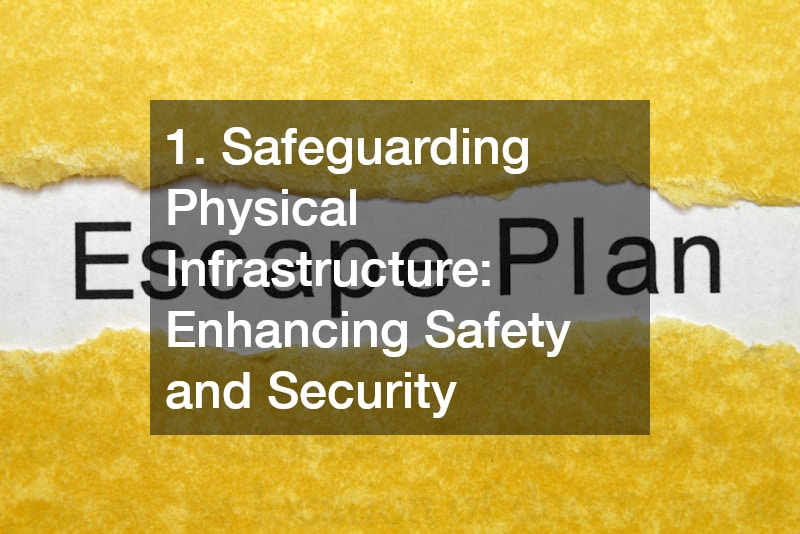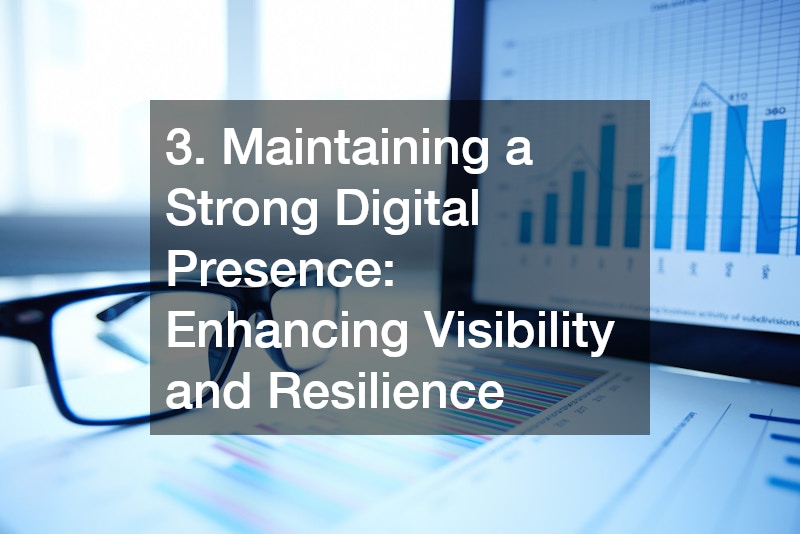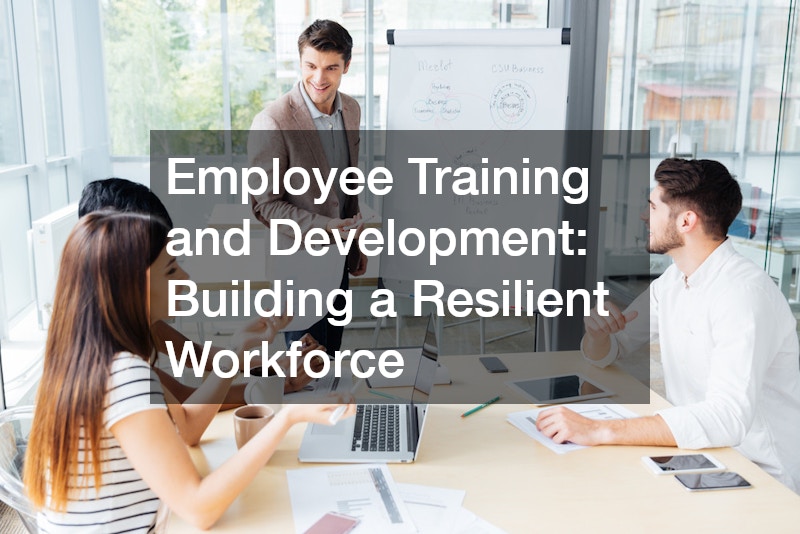In today’s fast-paced and unpredictable world, continuity measures are essential for businesses aiming to maintain operations amidst unexpected disruptions. Whether facing natural disasters, economic downturns, or cyber-attacks, businesses must prioritize resilience and preparedness to navigate these challenges effectively. Integrating risk mitigation strategies across various aspects of business operations not only ensures long-term success but also fosters stability, even in volatile conditions.
To fortify themselves against potential threats, businesses can implement key continuity measures that address both physical and digital domains. From safeguarding physical infrastructure and enhancing environmental compliance to maintaining a strong digital presence and sound financial management, each element plays a crucial role. Additionally, legal protections, strategic contractor relationships, and effective brand visibility further strengthen a business’s foundation against unforeseen events.
This article explores essential strategies for ensuring business continuity, offering insights into proven practices that enhance resilience. By examining the importance of fire sprinkler system design, commercial roofing, and perimeter security to digital marketing efforts, investment management, and estate planning, we aim to provide a holistic overview. With these measures, businesses can identify vulnerabilities, implement necessary safeguards, and continuously adapt to a rapidly changing landscape.
1. Safeguarding Physical Infrastructure: Enhancing Safety and Security

One of the most critical continuity measures for any business is the protection of its physical infrastructure. A robust fire protection plan, including an efficient fire sprinkler system design, plays a pivotal role in safeguarding company property, employees, and inventory. Consulting with professional fire protection designers can help tailor a fire protection system that matches the unique needs of the business based on its size, type, and location.
Compliance with local safety regulations is essential in ensuring that the chosen fire protection system provides effective coverage during an emergency. Regular maintenance and testing of the fire sprinkler system design are highly recommended to guarantee its reliability whenever needed. Through these measures, businesses can fortify their infrastructure against fire hazards, preventing potential loss and business interruptions.
Besides fire safety, attention should also be given to roofing solutions as part of a comprehensive continuity plan. Commercial roofing acts as the first line of defense against weather-related damages, which can compromise the integrity of the entire facility. Regular inspections by roofing experts are necessary to identify early signs of wear and plan timely repairs or upgrades to maintain optimal protection.
Perimeter security is another significant aspect that businesses must consider in their continuity measures. A well-constructed commercial fence can effectively deter unauthorized access and safeguard business assets. The selection of high-quality materials for the fence, coupled with regular inspections, ensures it remains robust against potential threats.
To further enhance security, businesses should integrate surveillance systems alongside their commercial fence installations. This not only provides a deterrent effect but also aids in the swift identification and response to unauthorized intrusions. By investing in a comprehensive physical security framework, businesses can protect their vital assets and maintain operational stability.
2. Environmental Safety and Compliance: Addressing Health Risks
In the pursuit of business continuity measures, addressing environmental safety and compliance is crucial to safeguarding both the business and its employees. Asbestos, a hazardous material commonly found in older buildings, poses significant health risks if not managed correctly. Asbestos removal services are essential for businesses operating in such environments to prevent exposure-related liabilities.
A comprehensive risk assessment should be conducted before any renovations or construction to identify the presence of asbestos. Engaging certified asbestos removal services ensures the safe handling and disposal of asbestos according to legal requirements. Compliance with health regulations not only protects employee health but also fortifies the business against potential legal ramifications.
Proper environmental safety and compliance are integral to maintaining an operational status and avoiding costly shutdowns. By proactively managing health risks like asbestos, businesses contribute to a safe workplace and reinforce their commitment to employee welfare. These measures play a fundamental role in stabilizing business operations, promoting a secure and compliant environment.
3. Maintaining a Strong Digital Presence: Enhancing Visibility and Resilience

In the digital era, continuity measures must include robust strategies to maintain online visibility and resilience. Digital marketing plays an instrumental role in retaining customer engagement and weathering market volatility. A comprehensive digital marketing plan that encompasses SEO, social media, and paid advertising is crucial to sustaining brand presence and attracting new customers.
Investment in content creation is vital for building brand authority, ensuring that the business remains relevant and memorable in the minds of consumers. By leveraging data analytics, businesses can refine their marketing efforts in real time, enhancing the effectiveness of their campaigns based on current performance metrics. This adaptability is key in maintaining a vibrant digital presence despite external market changes.
Additionally, safeguarding digital assets is crucial to business continuity. Managed IT solutions offer a security blanket by ensuring regular updates and protection against cyber threats. By adopting cloud-based solutions, businesses can achieve seamless data storage and quick access, reducing potential data management disruptions.
4. Financial Management: Planning for Stability and Growth
Financial management forms a cornerstone of solid continuity measures that aim for both stability and growth. An effective investment management strategy focuses on diversification, which mitigates financial risk and enhances resilience during market fluctuations. Collaborating with professional investment managers ensures that investment choices align with the business’s goals and risk appetite.
Liquidity is a critical factor in navigating unexpected challenges, allowing businesses to maintain operations despite financial adversity. By exploring options for retirement planning and long-term financial security, businesses can establish stability for future growth. This proactive approach assists in long-term goal achievement despite market volatility.
Ensuring financial continuity also involves frequent reassessment of current strategies and adjustments to align with the ever-changing economic landscape. With an agile investment management plan, businesses can robustly confront potential disruptions head-on. This measure guarantees the financial health and longevity of the business, even in unpredictable economic climates.
5. Legal Protections: Safeguarding Your Business from Uncertainty

Legal protections form a critical pillar within business continuity measures by ensuring that a business can withstand uncertainties and owner transitions. Estate planning lawyers play a vital role in developing thorough succession plans that secure the smooth transfer of asset ownership. Creating a will or trust outlines clear procedures for leadership transition, minimizing operational disruptions.
For family-owned businesses, setting up a buy-sell agreement is essential to manage ownership transitions seamlessly. This agreement helps avoid conflicts and maintains operational consistency in case of an owner’s death or incapacity. Estate planning lawyers offer crucial expertise in ensuring that succession plans comply with relevant business laws and maintain uninterrupted business operations.
By consulting legal experts, businesses can devise comprehensive strategies that encompass all possible contingencies, protecting their interests and securing their future. Legal safeguards ensure that the business remains compliant and capable of adapting to sudden changes without disruption. This foundation of legal assurance is pivotal in a firm’s continuity measures and ongoing success.
6. Contractor and Service Provider Relationships: Leveraging External Expertise
A unified approach between a business and its commercial contractors enhances resilience and supports continuity measures. Establishing a network of trusted contractors ensures timely responses to emergency repairs, maintenance, and construction needs. This proactive stance reduces downtime and keeps operations running smoothly, even during unexpected events.
Regularly reviewing and updating contracts ensures that services are always rendered at competitive rates and within agreed timelines. A sound and transparent business-contractor relationship enables contractors to understand the unique needs of the business, facilitating efficient service delivery and swift problem-solving.
Building long-term relationships with commercial contractors fosters a symbiotic relationship, leveraging their expertise to the business’s advantage. Contractors familiar with your operations provide value through efficient service and tailored solutions. Engaging reliable service providers enhances a business’s capacity to remain operational under stress, reinforcing the overall business continuity framework.
7. Brand Visibility: Ensuring Customer Engagement and Recognition

Brand visibility is a critical component of effective continuity measures, as it plays a significant role in maintaining customer engagement and recognition during disruptions. Business Signs, for instance, are vital for attracting customers and reinforcing brand identity. Investing in high-quality signage ensures that your business remains visible, even under adverse weather or emergency conditions.
It is essential that signage accurately reflects the business’s brand, with clear and concise messaging to captivate potential customers. Regular condition assessments and timely repairs or updates to business signs maintain their visibility and effectiveness, ensuring continued customer engagement.
Through strategic placement and maintenance of business signs, businesses fortify their visibility and outreach, even in challenging times. This aspect of continuity measures helps retain customer loyalty and attract new clientele, sustaining the business’s market presence. Thus, a well-considered approach to brand visibility strengthens the business’s foundational resilience against disruptions.
8. Crisis Communication: Ensuring Clear Messaging During Disruptions
Effective crisis communication is a key element in mitigating risks to business continuity. When disruptions occur—whether from natural disasters, economic instability, or cybersecurity breaches—having a clear, concise communication plan in place can prevent confusion and build trust among employees, customers, and stakeholders. An organized communication strategy ensures that all parties are informed and prepared to act, limiting the impact on operations.
To maintain transparency and ensure that messages are consistent, businesses should develop a crisis communication framework before emergencies arise. This plan should designate specific team members to handle communication, outline key messaging points, and provide guidelines for responding to external inquiries. Regular communication updates, whether through emails, press releases, or social media channels, help to keep customers and employees informed, reducing uncertainty.
Additionally, businesses should practice crisis communication protocols through mock drills and training sessions. This ensures that employees understand their roles during a crisis and can respond quickly. By fostering open and honest communication, businesses can preserve their reputation, maintain customer loyalty, and support overall continuity even in challenging times.
9. Supply Chain Resilience: Strengthening Vendor Relationships
A strong and resilient supply chain is fundamental to business continuity, especially when unforeseen disruptions impact vendor operations. Diversifying suppliers and building solid relationships with key vendors helps mitigate the risk of delays or disruptions in the supply chain, ensuring that products and services remain available even during crises. Establishing clear expectations and communication lines with suppliers is critical to maintaining continuity and mitigating the impact of external factors like weather events or geopolitical instability.
To strengthen supply chain resilience, businesses should implement contingency plans that identify alternative suppliers or logistics partners in case of disruption. Regularly reviewing contracts and assessing suppliers’ business continuity measures can also help identify potential vulnerabilities. Building a collaborative relationship with vendors based on mutual understanding and trust further supports long-term stability. A proactive approach to supply chain management ensures that businesses can adjust quickly to changes, keeping operations running smoothly.
Additionally, businesses should invest in technology that improves supply chain visibility and enables real-time tracking. These tools allow for quick identification of issues and faster response times, which is essential for minimizing downtime and maintaining customer satisfaction.
10. Employee Training and Development: Building a Resilient Workforce

A business’s workforce is its most valuable asset, and investing in employee training and development plays a crucial role in ensuring continuity during disruptions. A skilled, adaptable workforce is better equipped to handle changes in the business environment and contribute to recovery efforts in times of crisis. Regular training not only improves operational efficiency but also empowers employees to make informed decisions in high-pressure situations.
To enhance business continuity, businesses should implement ongoing training programs that focus on both technical skills and crisis management. Employees should be educated on the company’s continuity plan and their specific roles in executing it. Developing leadership skills within teams helps businesses respond more effectively to unforeseen events, as employees are prepared to take on increased responsibilities when necessary.
By investing in employee development and fostering a culture of resilience, businesses can ensure that their workforce remains agile and capable of navigating disruptions with confidence. Furthermore, offering cross-training opportunities enables employees to adapt to different roles, providing more flexibility during times of operational strain.
Conclusion
In conclusion, embracing comprehensive continuity measures is indispensable for safeguarding a business against potential disruptions. From safeguarding physical infrastructures and prioritizing environmental compliance to fortifying digital presence and financial stability, each strategy enhances overall resilience. Legal protections and strategic relationships with contractors and service providers further reinforce a firm’s capacity to manage unforeseen challenges effectively.
As businesses navigate an unpredictable landscape, it is essential to continually assess current systems and identify vulnerabilities within their operations. Implementing timely upgrades and aligning strategies with industry best practices are vital steps in this process. Through dedicated efforts towards innovation and adaptation, businesses can ensure continued success and stability, even in the face of adversity.
By integrating these continuity measures at all levels, businesses can achieve a robust framework that supports seamless operations in the long term. Business owners are encouraged to prioritize these initiatives to secure their futures and protect their investments, ensuring preparedness for any potential disruptions. As they do so, they not only safeguard their own success but bolster the stability of the wider industry ecosystem.


